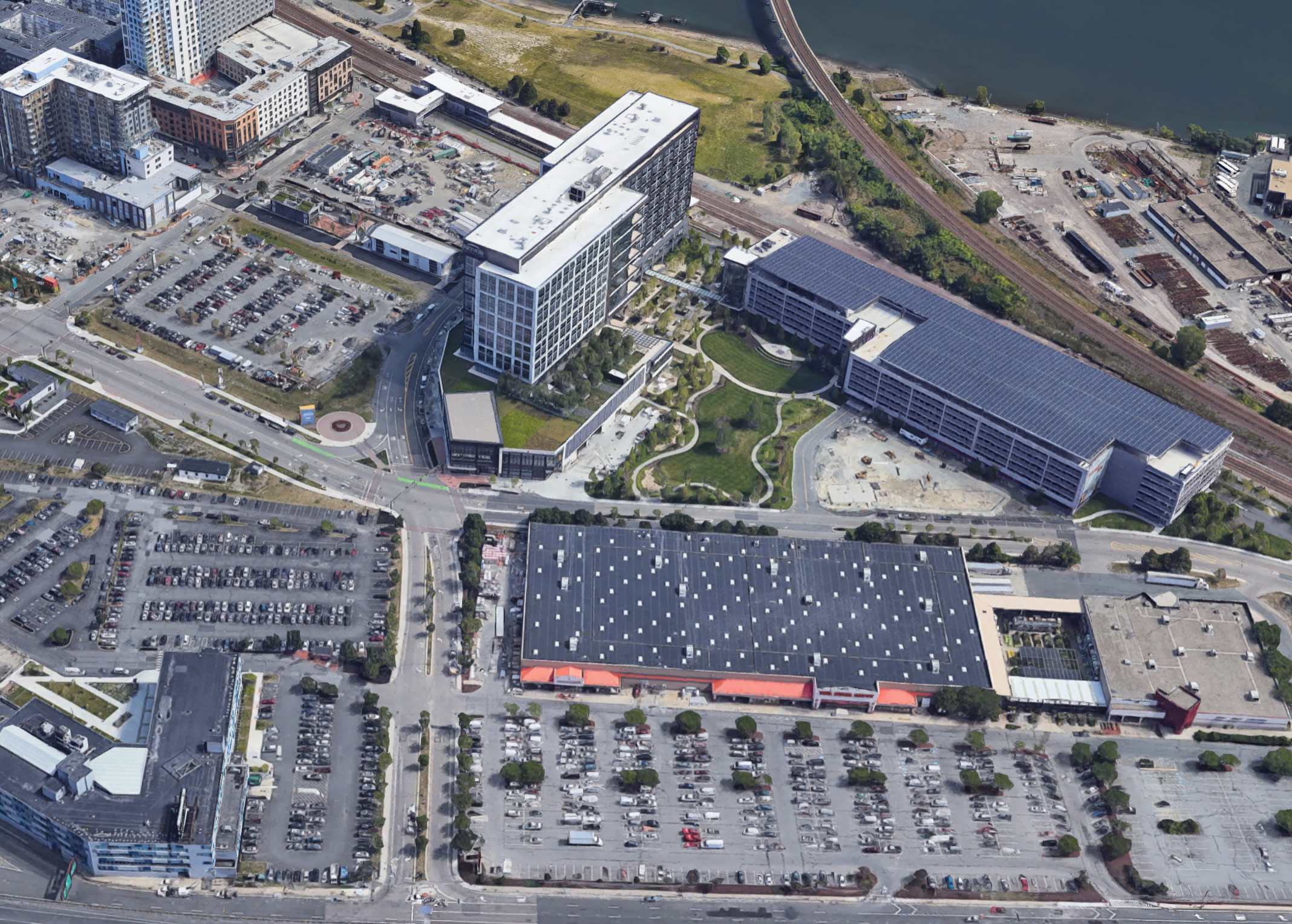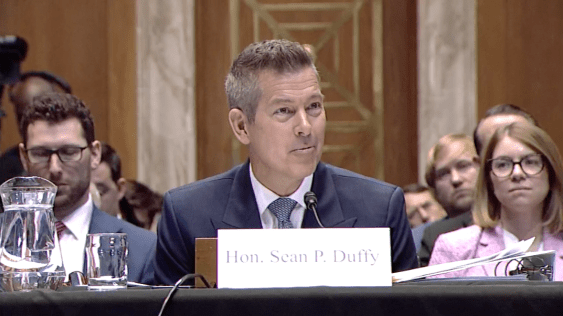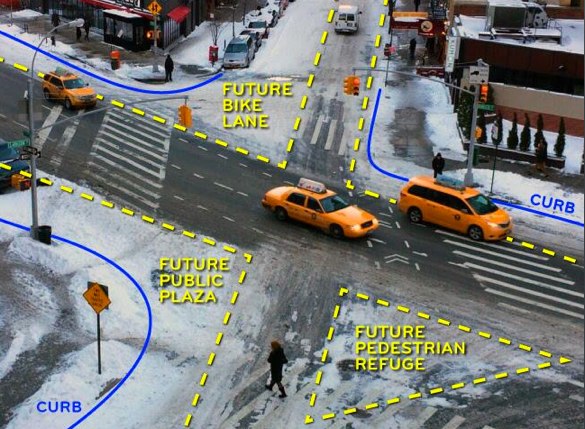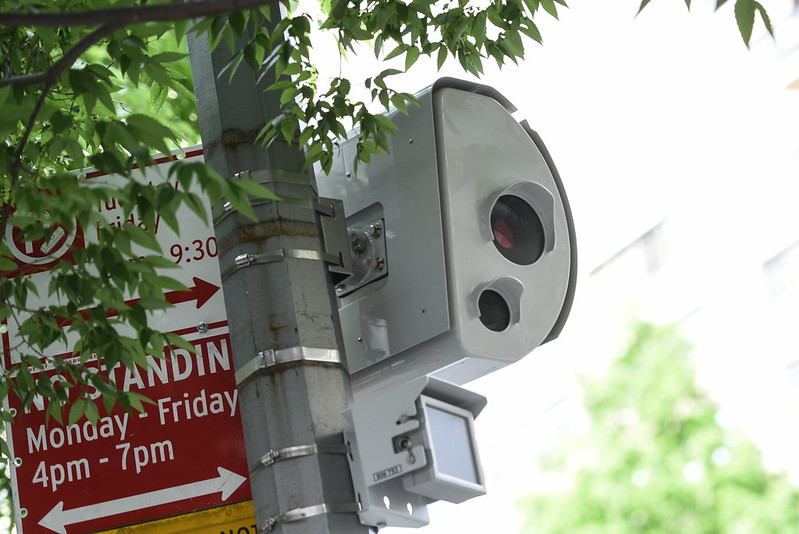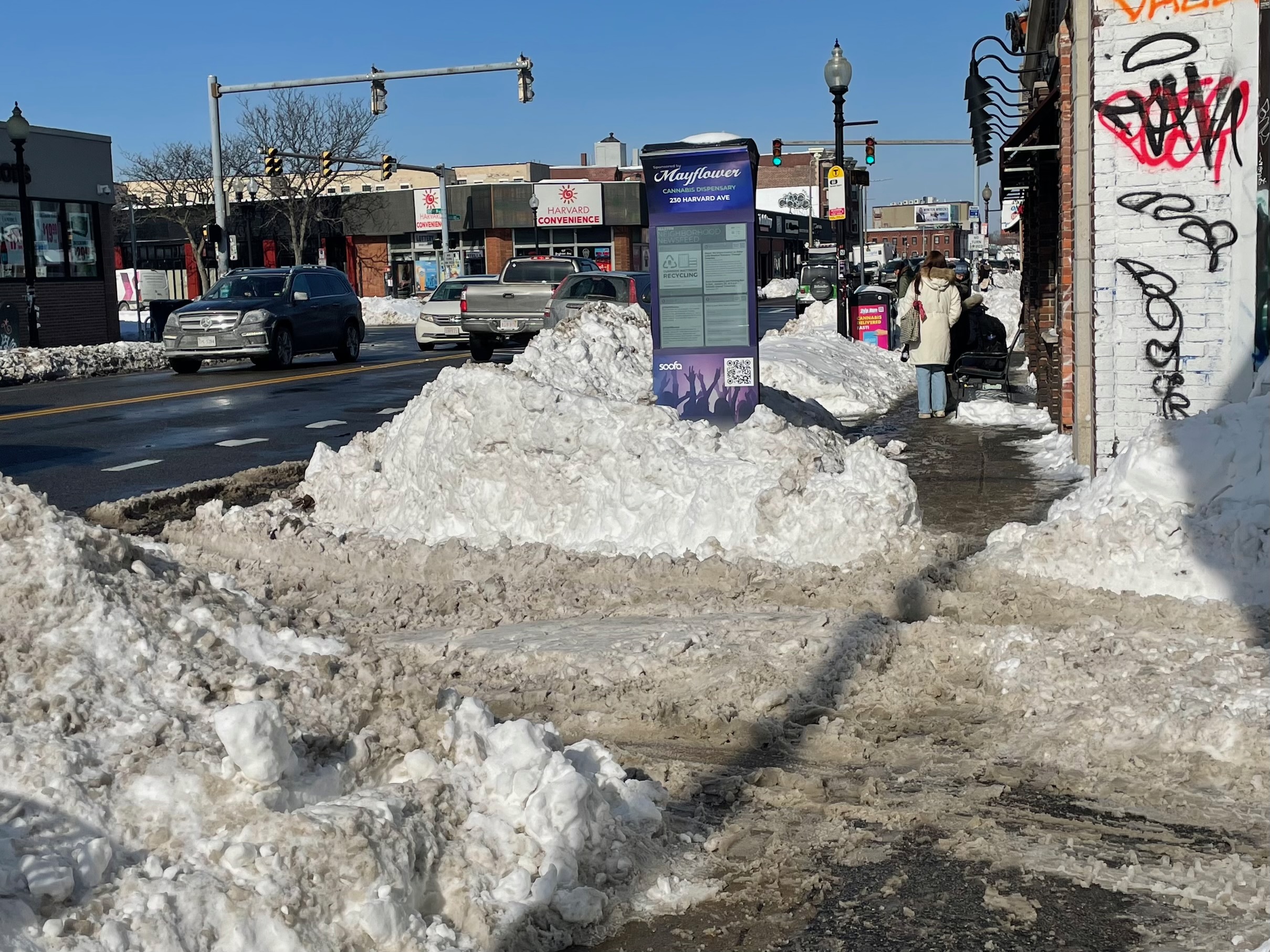The Somerville City Council has approved a new zoning law that eliminates mandatory parking requirements across much of the city, and sets an upper limit to how much new parking can be built in the city's most transit-accessible neighborhoods.
The Council's endorsement culminates a seven-year effort to re-write the city's zoning ordinance, which the city describes as "the first major overhaul of zoning in Somerville since 1990."
Besides reforming the city's parking requirements, the zoning update also aims to facilitate more transit-accessible development in anticipation of the upcoming arrival of the Green Line Extension, which is expected to open before the end of 2021.
The new zoning rules provide new incentives for higher-density affordable housing, and include provisions that will legalize triple-deckers in more neighborhoods.
"I am thrilled to finally say we have an ordinance that is progressive, that makes sense, and that keeps Somerville on the move,” said Somerville Mayor Joe Curtatone in a press release announcing the new ordinance.
Most zoning laws across the nation – including the zoning laws of Boston, Brookline, and Cambridge – still require developers to build off-street parking with every new building that goes up, regardless of whether tenants actually use cars.
Besides eliminating those minimum requirements for most of the city, Somerville's new zoning code also sets maximum parking rules to ensure that valuable transit-oriented land isn't squandered with traffic-inducing parking garages.
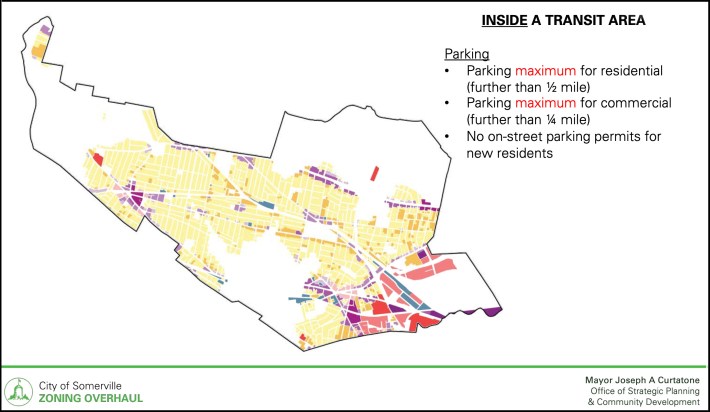
By cutting off-street parking requirements and regulating parking in transit-accessible neighborhoods, Somerville's new zoning embraces a recommendation made in the Metropolitan Area Planning Council's "Perfect Fit" parking study, which studied off-street parking utilization at dozens of multifamily residential developments throughout the region.
"Overall, 30 percent of the available parking we surveyed was not being used," the study's authors found. "At a quarter of the sites, less than half the parking was occupied... Not only is the over-building of parking in residential developments wasting tremendous amounts of money and useful space; but the provision of abundant parking may also be counterproductive to local transportation goals for traffic and sustainability."
Somerville's elimination of mandatory minimum parking rules follows similar efforts in Buffalo, Hartford, and San Francisco.
